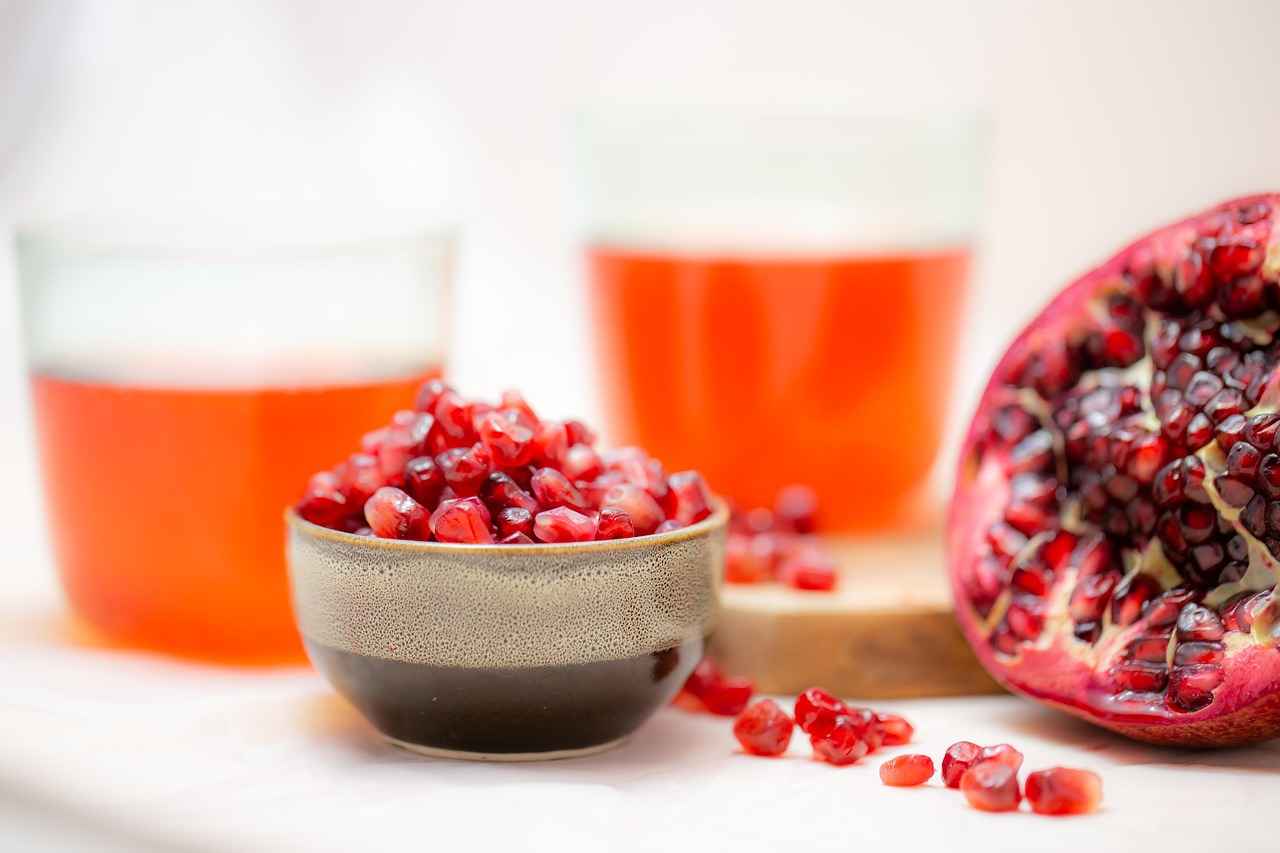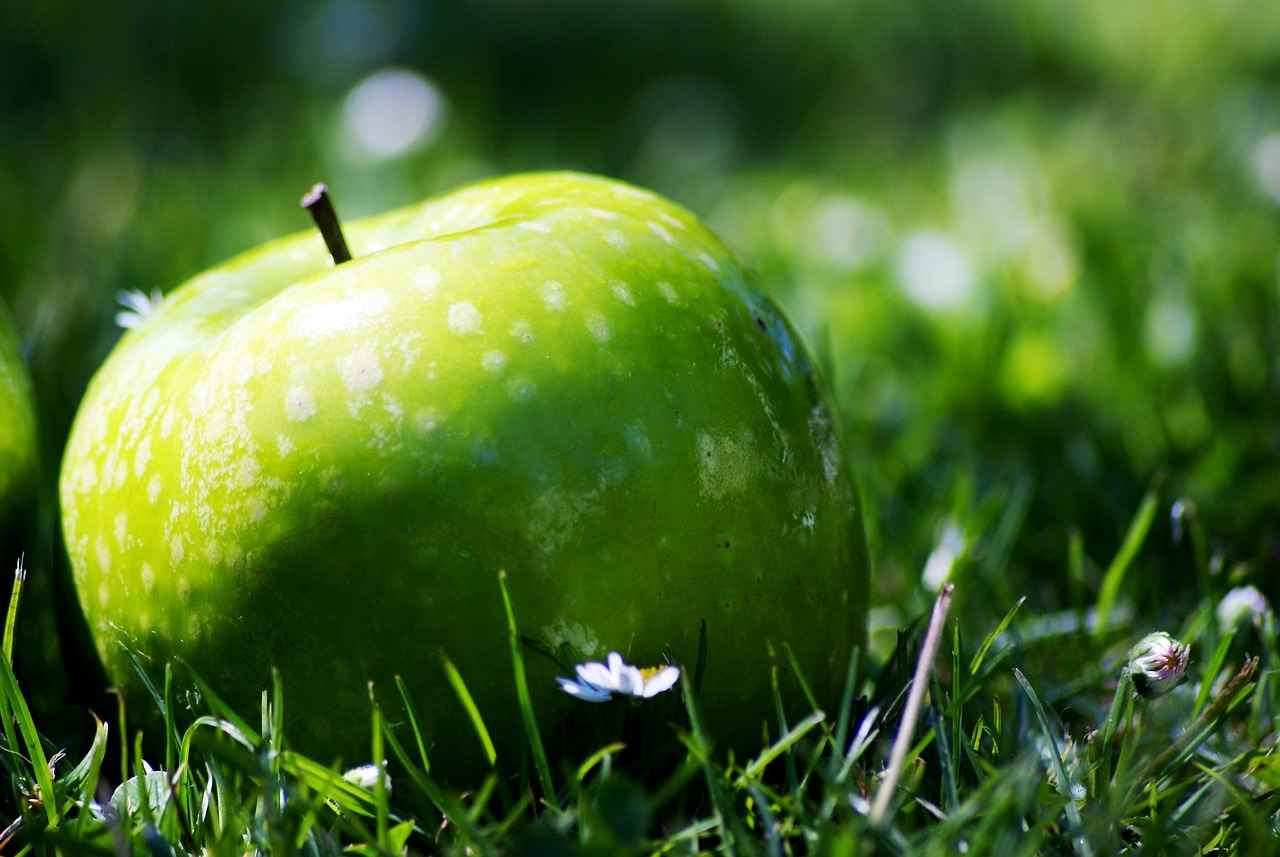This article delves into the vascular health benefits of Hawthorn Berry, exploring its properties, uses, and scientific backing to provide a comprehensive understanding of this powerful natural remedy.
What is Hawthorn Berry?
Hawthorn Berry, derived from the Crataegus plant, is rich in antioxidants and has been utilized for centuries in traditional medicine for heart and vascular health. This small fruit is recognized for its ability to support cardiovascular function and improve circulation.
Historical Uses of Hawthorn Berry
Historically, Hawthorn Berry has been used in various cultures for its medicinal properties, particularly for heart-related ailments and as a natural remedy for improving circulation.
- Traditional Medicine Practices: In traditional medicine, Hawthorn Berry has been employed to treat conditions such as heart failure and angina, showcasing its longstanding significance in herbal remedies.
- Ancient Remedies: Ancient civilizations, including the Greeks and Romans, recognized the therapeutic potential of Hawthorn Berry, often using it to promote heart health and overall vitality.
- Modern Herbal Practices: Today, herbalists continue to advocate for Hawthorn Berry as a natural supplement to support cardiovascular wellness, backed by both tradition and emerging research.
Modern Research on Hawthorn Berry
Recent studies have begun to validate the historical uses of Hawthorn Berry, indicating its potential benefits for heart health and circulation through scientific investigation.
Health Benefits of Hawthorn Berry
Hawthorn Berry is celebrated for various health benefits, particularly its positive effects on cardiovascular function, blood circulation, and overall heart health.
- Cardiovascular Support: Research suggests that Hawthorn Berry can enhance cardiovascular function by improving blood flow and reducing symptoms of heart-related conditions.
- Antioxidant Properties: Hawthorn Berry is rich in flavonoids and antioxidants, which help combat oxidative stress and inflammation, contributing to better vascular health.
How to Use Hawthorn Berry
Hawthorn Berry can be consumed in various forms, including teas, capsules, and extracts, making it accessible for those seeking its health benefits.
- Dosage Recommendations: Understanding the appropriate dosage of Hawthorn Berry is crucial for maximizing its benefits while minimizing potential side effects.
- Preparation Methods: Different preparation methods, such as infusions and tinctures, can affect the efficacy of Hawthorn Berry, making it important to choose the right form for individual needs.
Potential Side Effects and Considerations
While generally considered safe, Hawthorn Berry may cause side effects in some individuals, necessitating awareness and caution when incorporating it into health routines.
- Interactions with Medications: Hawthorn Berry may interact with certain medications, particularly those for heart conditions, so consulting a healthcare provider before use is advisable.
- Who Should Avoid Hawthorn Berry? Certain populations, such as pregnant women or individuals with specific health conditions, should exercise caution or avoid Hawthorn Berry altogether.
Conclusion: The Future of Hawthorn Berry in Vascular Health
As research continues to unfold, Hawthorn Berry holds promise as a natural ally for cardiovascular health, encouraging further exploration of its benefits and applications in modern wellness practices.

What is Hawthorn Berry?
Hawthorn Berry, derived from the Crataegus plant, is a small fruit that has been celebrated for its numerous health benefits, particularly in relation to heart and vascular health. This berry is not just a staple in traditional medicine; it is also recognized in modern herbal practices for its potential to support cardiovascular function and overall wellness.
The fruit is rich in antioxidants, particularly flavonoids, which are compounds known for their ability to combat oxidative stress in the body. This oxidative stress can lead to inflammation and various health issues, including those affecting the heart. By incorporating Hawthorn Berry into one’s diet, individuals may experience enhanced blood circulation and improved vascular health.
Historically, Hawthorn Berry has been utilized in various cultures around the world. Ancient civilizations, including the Greeks and Romans, recognized its therapeutic potential, often using it to promote heart health. Traditional medicine practices have employed this berry to treat a range of heart-related ailments, showcasing its longstanding significance as a natural remedy.
Recent scientific studies have begun to validate the historical uses of Hawthorn Berry. Research indicates that it may enhance cardiovascular function by improving blood flow and reducing symptoms associated with heart conditions. These findings highlight the importance of continuing to explore the benefits of this powerful natural remedy.
- Cardiovascular Support: Hawthorn Berry is known to support heart health by improving circulation and reducing the risk of heart-related issues.
- Antioxidant Properties: The rich flavonoid content helps fight oxidative stress, contributing to better vascular health.
Hawthorn Berry can be consumed in various forms, including teas, capsules, and extracts. Understanding the appropriate dosage is crucial for maximizing its benefits while minimizing potential side effects. Different preparation methods, such as infusions and tinctures, can also affect its efficacy.
While generally considered safe, some individuals may experience side effects. It is important to consult a healthcare provider before incorporating Hawthorn Berry into your health routine, especially if you are taking medications for heart conditions.
As research continues to unfold, Hawthorn Berry remains a promising natural ally for cardiovascular health. Its rich history and emerging scientific backing encourage further exploration into its benefits and applications in modern wellness practices.

Historical Uses of Hawthorn Berry
Throughout history, Hawthorn Berry has been revered in various cultures for its medicinal properties, particularly in relation to heart health and circulation. This small, red fruit, derived from the Crataegus plant, has a rich legacy that spans centuries and continents.
In ancient times, the Greeks and Romans were among the first to recognize the potential of Hawthorn Berry. They used it not only for its culinary appeal but also as a remedy for heart ailments. The Greeks, in particular, believed that it could enhance overall vitality and longevity. This belief was reinforced by the writings of Hippocrates, who noted the plant’s efficacy in treating various heart conditions.
Moving forward in history, during the Middle Ages, Hawthorn Berry gained popularity as a treatment for heart-related issues and was often included in herbal remedies. Traditional healers valued its ability to improve circulation and alleviate symptoms associated with heart failure and angina. Herbalists of the time would prepare tinctures and infusions, harnessing the berry’s natural properties to aid those suffering from cardiovascular ailments.
In modern herbal practices, Hawthorn Berry continues to be a staple in natural medicine. Its use has been supported by emerging scientific research, which validates many of the historical claims regarding its health benefits. Today, practitioners advocate for its inclusion in dietary supplements aimed at promoting cardiovascular wellness.
Conclusion: The historical significance of Hawthorn Berry is evident in its longstanding use across cultures as a natural remedy for heart health. As we continue to explore its benefits through modern research, this humble berry remains a powerful ally in the pursuit of vascular health.
Traditional Medicine Practices
Exploring the Vascular Benefits of Hawthorn BerryThis article delves into the vascular health benefits of Hawthorn Berry, exploring its properties, uses, and scientific backing to provide a comprehensive understanding of this powerful natural remedy.
What is Hawthorn Berry?
Hawthorn Berry, derived from the Crataegus plant, is rich in antioxidants and has been utilized for centuries in traditional medicine for heart and vascular health.
Historical Uses of Hawthorn Berry
Historically, Hawthorn Berry has been used in various cultures for its medicinal properties, particularly for heart-related ailments and as a natural remedy for improving circulation.
In traditional medicine, Hawthorn Berry has been employed to treat conditions such as heart failure and angina, showcasing its longstanding significance in herbal remedies. Its use can be traced back to ancient civilizations where it was revered for its ability to enhance heart function and promote overall wellness. These practices highlight the berry’s role in supporting cardiovascular health and its importance in various herbal formulations.
Ancient Remedies
Ancient civilizations, including the Greeks and Romans, recognized the therapeutic potential of Hawthorn Berry, often using it to promote heart health and overall vitality.
Modern Herbal Practices
Today, herbalists continue to advocate for Hawthorn Berry as a natural supplement to support cardiovascular wellness, backed by both tradition and emerging research.
Modern Research on Hawthorn Berry
Recent studies have begun to validate the historical uses of Hawthorn Berry, indicating its potential benefits for heart health and circulation through scientific investigation.
Health Benefits of Hawthorn Berry
Hawthorn Berry is celebrated for various health benefits, particularly its positive effects on cardiovascular function, blood circulation, and overall heart health.
Cardiovascular Support
Research suggests that Hawthorn Berry can enhance cardiovascular function by improving blood flow and reducing symptoms of heart-related conditions.
Antioxidant Properties
Hawthorn Berry is rich in flavonoids and antioxidants, which help combat oxidative stress and inflammation, contributing to better vascular health.
How to Use Hawthorn Berry
Hawthorn Berry can be consumed in various forms, including teas, capsules, and extracts, making it accessible for those seeking its health benefits.
Dosage Recommendations
Understanding the appropriate dosage of Hawthorn Berry is crucial for maximizing its benefits while minimizing potential side effects.
Preparation Methods
Different preparation methods, such as infusions and tinctures, can affect the efficacy of Hawthorn Berry, making it important to choose the right form for individual needs.
Potential Side Effects and Considerations
While generally considered safe, Hawthorn Berry may cause side effects in some individuals, necessitating awareness and caution when incorporating it into health routines.
Interactions with Medications
Hawthorn Berry may interact with certain medications, particularly those for heart conditions, so consulting a healthcare provider before use is advisable.
Who Should Avoid Hawthorn Berry?
Certain populations, such as pregnant women or individuals with specific health conditions, should exercise caution or avoid Hawthorn Berry altogether.
Conclusion: The Future of Hawthorn Berry in Vascular Health
As research continues to unfold, Hawthorn Berry holds promise as a natural ally for cardiovascular health, encouraging further exploration of its benefits and applications in modern wellness practices.
Ancient Remedies
Throughout history, various ancient civilizations have made significant contributions to our understanding of natural remedies, particularly in the realm of herbal medicine. Among these, the Hawthorn Berry, derived from the Crataegus plant, has been celebrated for its remarkable therapeutic properties, especially concerning heart health.
The Greeks and Romans were particularly fond of this berry, often incorporating it into their medicinal practices. They recognized its ability to strengthen the heart and improve overall vitality. Ancient texts suggest that Hawthorn was used to treat a range of cardiovascular issues, including angina and heart failure, showcasing its importance in traditional healing.
In addition to its heart-related benefits, Hawthorn Berry was also valued for its ability to enhance circulation. Ancient herbalists prepared various concoctions, including teas and tinctures, to harness the berry’s full potential. These remedies were often accompanied by rituals and beliefs that emphasized the berry’s sacred connection to health and wellness.
Moreover, the antioxidant properties of Hawthorn Berry were acknowledged long before modern science validated them. The flavonoids present in the berry are known to combat oxidative stress, a key factor in many chronic diseases. This understanding laid the groundwork for the continued use of Hawthorn in both ancient and contemporary herbal medicine.
As we explore the legacy of Hawthorn Berry, it becomes clear that its historical significance is not merely anecdotal. The knowledge passed down through generations has paved the way for modern herbal practices, where Hawthorn continues to be a popular choice for those seeking natural support for their cardiovascular health.
In conclusion, the ancient remedies surrounding Hawthorn Berry illustrate a profound respect for nature’s healing capabilities. As we delve deeper into its benefits, we honor the wisdom of those who recognized the berry’s potential long before scientific validation.
Modern Herbal Practices
have seen a significant resurgence in recent years, with many individuals seeking natural alternatives to promote their health and well-being. Among these, Hawthorn Berry has emerged as a popular choice, particularly for its potential cardiovascular benefits. This article explores the contemporary use of Hawthorn Berry, its applications, and the science supporting its efficacy.
Hawthorn Berry, scientifically known as Crataegus, has been a staple in herbal medicine for centuries. Today, herbalists advocate for its use not only based on traditional practices but also due to emerging research that highlights its benefits for heart health. This dual foundation of traditional and scientific backing makes Hawthorn Berry a compelling option for those looking to enhance their cardiovascular wellness.
| Benefits of Hawthorn Berry | Description |
|---|---|
| Cardiovascular Support | Improves blood circulation and alleviates symptoms of heart-related issues. |
| Antioxidant Properties | Rich in flavonoids that combat oxidative stress and inflammation. |
| Improved Circulation | Enhances blood flow, promoting overall vascular health. |
Incorporating Hawthorn Berry into one’s health regimen can be done in various forms including teas, capsules, and tinctures. Each preparation method offers unique benefits, allowing individuals to choose the form that best suits their lifestyle and health goals. Dosage is a critical factor; thus, consulting with a healthcare professional is advisable to determine the appropriate amount for personal needs.
While Hawthorn Berry is generally considered safe, it is important to be aware of potential side effects and interactions with medications, particularly those that affect heart health. Pregnant women and individuals with specific health issues should exercise caution and seek professional advice before use.
As research continues to validate the benefits of Hawthorn Berry, it is clear that this powerful natural remedy holds promise for those seeking to improve their cardiovascular health. By embracing both traditional knowledge and modern science, individuals can harness the full potential of Hawthorn Berry in their wellness journey.
Modern Research on Hawthorn Berry
In recent years, the scientific community has turned its attention to Hawthorn Berry, a natural remedy that has been celebrated for centuries for its potential cardiovascular benefits. This renewed interest has led to a series of studies that validate the historical uses of this remarkable berry, shedding light on its efficacy in promoting heart health and improving circulation.
Research indicates that Hawthorn Berry may play a significant role in enhancing cardiac function. A number of clinical trials have shown that its active compounds, particularly flavonoids and oligomeric proanthocyanidins, can help improve blood flow and reduce symptoms associated with heart-related conditions. For instance, a study published in the European Journal of Heart Failure demonstrated that patients with chronic heart failure who consumed Hawthorn extract experienced notable improvements in their heart function and quality of life.
Moreover, Hawthorn Berry is recognized for its antioxidant properties. By combating oxidative stress and inflammation, it contributes to better vascular health, which is crucial for maintaining a healthy heart. A meta-analysis of existing research highlighted that regular consumption of Hawthorn can lead to a decrease in blood pressure and cholesterol levels, further supporting its role in cardiovascular wellness.
Additionally, the berry’s potential benefits extend beyond just heart health. Emerging research suggests that Hawthorn may also aid in reducing anxiety and improving overall mental well-being, making it a versatile addition to a health regimen. As studies continue to explore the full range of benefits offered by Hawthorn Berry, it is clear that this ancient remedy is being validated by modern science.
In conclusion, the growing body of research surrounding Hawthorn Berry underscores its potential as a natural ally for cardiovascular health. As we continue to uncover the depths of its capabilities, it remains an important subject of interest for both herbalists and the scientific community alike.

Health Benefits of Hawthorn Berry
Hawthorn Berry, derived from the Crataegus plant, is renowned for its numerous health benefits, particularly in relation to cardiovascular health. This small fruit has been a staple in traditional medicine for centuries, and modern research continues to uncover its remarkable properties.
Cardiovascular Support
One of the primary health benefits of Hawthorn Berry is its ability to support cardiovascular function. Research indicates that it can help improve blood flow, which is essential for maintaining a healthy heart. Hawthorn Berry is believed to enhance the heart’s pumping ability, thereby reducing symptoms associated with heart conditions such as angina and heart failure.
Improved Blood Circulation
Another significant benefit is its effect on blood circulation. Hawthorn Berry contains potent antioxidants that help dilate blood vessels, making it easier for blood to flow throughout the body. This can lead to improved oxygen delivery to vital organs and tissues, promoting overall health and vitality.
Antioxidant Properties
Hawthorn Berry is rich in flavonoids and other antioxidants, which play a crucial role in combating oxidative stress. By reducing inflammation and protecting cells from damage, these compounds contribute to better vascular health and may lower the risk of chronic diseases.
Usage and Preparation
Hawthorn Berry can be consumed in various forms, including teas, capsules, and extracts. The method of preparation may influence its effectiveness, so it is essential to choose a form that suits individual preferences and health needs.
Conclusion
As research continues to validate its benefits, Hawthorn Berry stands out as a natural remedy for promoting cardiovascular health. Incorporating this powerful berry into your wellness routine may enhance heart health and overall well-being.
Cardiovascular Support
is an essential aspect of maintaining overall health, and research has increasingly highlighted the role of natural remedies like Hawthorn Berry in supporting heart function. This small fruit, derived from the Crataegus plant, has been cherished for its potential to enhance cardiovascular health through various mechanisms.
Studies indicate that Hawthorn Berry may improve blood flow and alleviate symptoms associated with heart-related conditions. The berries are rich in antioxidants, particularly flavonoids, which are known to combat oxidative stress and inflammation in the cardiovascular system.
- Improved Blood Circulation: Hawthorn Berry has been shown to dilate blood vessels, which can help increase blood flow to the heart and other vital organs.
- Symptom Relief: Individuals suffering from conditions such as angina or heart failure may experience reduced symptoms when incorporating Hawthorn Berry into their routine.
- Heart Function Enhancement: The berry is believed to strengthen the heart muscle, improving its efficiency and overall function.
Moreover, Hawthorn Berry is often recommended as a complementary treatment alongside conventional therapies for heart health. Its natural properties make it an appealing option for those seeking to enhance their cardiovascular wellness without relying solely on pharmaceuticals.
While the benefits of Hawthorn Berry are promising, it is crucial to consult with a healthcare professional before starting any new supplement, especially for individuals with pre-existing heart conditions or those taking medications that may interact with herbal remedies.
In conclusion, Hawthorn Berry stands out as a natural ally for cardiovascular support, with research backing its potential to improve heart health and enhance blood circulation. As interest in natural remedies continues to grow, Hawthorn Berry may play an increasingly significant role in holistic approaches to cardiovascular wellness.
Antioxidant Properties
of Hawthorn Berry
Hawthorn Berry, known scientifically as Crataegus, is a small fruit that has garnered significant attention for its numerous health benefits, particularly its remarkable . These properties are primarily attributed to the high concentrations of flavonoids and other bioactive compounds present in the berry.
Antioxidants are essential for combating oxidative stress, a condition characterized by the imbalance between free radicals and antioxidants in the body. Free radicals are unstable molecules that can cause cellular damage, leading to various health issues, including cardiovascular diseases. By neutralizing these free radicals, Hawthorn Berry helps to protect the body from potential harm.
Moreover, the anti-inflammatory effects of Hawthorn Berry further contribute to its overall health benefits. Chronic inflammation is another factor that can adversely affect vascular health, and by reducing inflammation, Hawthorn Berry may support better blood flow and heart function.
Recent studies have shown that regular consumption of Hawthorn Berry can lead to improved vascular health. This is particularly beneficial for individuals with existing heart conditions, as the berry can help alleviate symptoms such as angina and heart failure. Additionally, its ability to enhance blood circulation makes it a valuable supplement for those looking to maintain optimal cardiovascular function.
Incorporating Hawthorn Berry into your diet can be done in various forms, including teas, extracts, and capsules. Each form offers unique advantages, allowing individuals to choose the method that best suits their lifestyle and health needs.
In conclusion, the antioxidant properties of Hawthorn Berry play a crucial role in promoting vascular health. Its rich flavonoid content not only combats oxidative stress but also supports overall heart function, making it a potent natural remedy for cardiovascular wellness.

How to Use Hawthorn Berry
Hawthorn Berry is a remarkable natural remedy known for its numerous health benefits, particularly in the realm of cardiovascular health. As more individuals seek to incorporate this powerful berry into their diets, understanding the various methods of consumption becomes essential. This section will explore the different ways to enjoy Hawthorn Berry, ensuring that you can easily access its potential advantages.
Hawthorn Berry can be consumed in a variety of forms, making it a versatile addition to your health regimen. Below are some popular methods of consumption:
- Teas: One of the most traditional ways to enjoy Hawthorn Berry is by brewing it into a tea. This method allows for the gentle extraction of its beneficial compounds. Simply steep dried Hawthorn Berries in hot water for 10-15 minutes to create a soothing beverage.
- Capsules: For those who prefer convenience, Hawthorn Berry capsules are widely available. These provide a standardized dose of the berry’s active ingredients, making it easy to incorporate into daily routines.
- Extracts: Hawthorn extracts, often in liquid form, offer a concentrated source of the berry’s benefits. These can be added to water or taken directly, providing a quick and effective way to experience its effects.
- Tinctures: Similar to extracts, tinctures are made by soaking Hawthorn Berry in alcohol or vinegar. This method preserves the berry’s properties and allows for easy dosage adjustments.
When using Hawthorn Berry, it is vital to adhere to recommended dosages to maximize benefits while minimizing any potential side effects. Generally, a daily intake of 160-900 mg of Hawthorn extract is suggested, but it’s always wise to consult with a healthcare provider for personalized advice.
Different preparation methods can influence the effectiveness of Hawthorn Berry. For instance, making a tea may extract certain flavonoids, while tinctures may capture a broader spectrum of its active compounds. Experimenting with various forms can help you find the most suitable option for your health needs.
In conclusion, Hawthorn Berry’s accessibility through different consumption methods makes it an appealing choice for those looking to enhance their cardiovascular health. Whether you prefer teas, capsules, or extracts, incorporating this potent berry into your daily routine can be both enjoyable and beneficial.
Dosage Recommendations
When it comes to harnessing the potential benefits of Hawthorn Berry, understanding the appropriate dosage is essential. This knowledge not only maximizes the health benefits but also minimizes the risk of potential side effects. Here, we will explore key factors to consider when determining the right dosage for individual needs.
- Consultation with Healthcare Professionals: Before starting any new supplement, including Hawthorn Berry, it is advisable to consult with a healthcare provider. They can offer personalized advice based on your health status and any medications you may be taking.
- Standard Dosage Guidelines: Generally, dosages of Hawthorn Berry range from 160 mg to 900 mg per day, depending on the form of the supplement. For instance, standardized extracts may require lower doses than whole berry forms.
- Form of Hawthorn Berry: The dosage may vary based on whether you are using capsules, tinctures, or teas. For example, a typical dose for a tincture might be around 1-2 mL taken three times daily.
- Duration of Use: It is important to note that the benefits of Hawthorn Berry may take time to manifest. Continuous use over several weeks is often recommended to achieve optimal results.
- Individual Variability: Factors such as age, weight, and overall health can influence how one responds to Hawthorn Berry. Therefore, starting with a lower dose and gradually increasing it while monitoring your body’s response is a prudent approach.
Conclusion: Understanding the appropriate dosage of Hawthorn Berry is crucial for maximizing its benefits while minimizing potential side effects. Always prioritize safety by consulting healthcare professionals and monitoring your body’s reactions to the supplement.
Preparation Methods
When it comes to harnessing the health benefits of Hawthorn Berry, the method of preparation plays a crucial role in determining its efficacy. Different techniques can yield varying concentrations of active compounds, which can significantly influence the outcomes for individuals seeking to improve their vascular health.
Infusions are one of the most common methods of preparing Hawthorn Berry. This involves steeping the dried berries in hot water, allowing the beneficial properties to leach into the liquid. Infusions are generally easy to prepare and can be consumed as a tea. This method is particularly effective for those who prefer a gentle approach to herbal remedies, as it provides a milder effect while still delivering essential nutrients.
On the other hand, tinctures offer a more potent alternative. Tinctures are made by soaking the berries in alcohol or vinegar, which extracts a higher concentration of the active constituents. This method is ideal for individuals looking for a stronger dose of Hawthorn Berry, as tinctures can be taken in smaller amounts compared to infusions. However, the alcohol content may not be suitable for everyone, particularly those with certain health conditions or those avoiding alcohol.
Another popular preparation method is capsules or tablets. These forms provide a convenient and standardized dosage, making it easier for individuals to incorporate Hawthorn Berry into their daily routine. Capsules often contain powdered extracts of the berries, ensuring a consistent intake of the beneficial compounds.
Ultimately, the choice of preparation method should align with individual preferences and health goals. Understanding the differences between these methods can empower individuals to make informed decisions, maximizing the potential health benefits of Hawthorn Berry. Whether one opts for a soothing infusion or a concentrated tincture, the key is to choose a form that suits their unique needs.

Potential Side Effects and Considerations
While Hawthorn Berry is generally regarded as a safe and beneficial supplement for cardiovascular health, it is important to recognize that it may cause side effects in some individuals. Awareness and caution are essential when incorporating this natural remedy into health routines.
Some potential side effects include:
- Dizziness: Some users may experience dizziness, especially if they are sensitive to changes in blood pressure.
- Gastrointestinal Issues: Mild digestive disturbances, such as nausea or upset stomach, can occur in a small percentage of users.
- Allergic Reactions: Although rare, some individuals may develop an allergic reaction, characterized by symptoms like rash, itching, or swelling.
Furthermore, it is crucial to consider interactions with medications. Hawthorn Berry may enhance the effects of certain heart medications, leading to potential complications. Therefore, consulting with a healthcare provider before starting Hawthorn Berry is advisable, especially for those taking:
- Antihypertensive medications
- Blood thinners
- Heart medications
Who Should Avoid Hawthorn Berry?
Certain populations should exercise caution or avoid Hawthorn Berry altogether. This includes:
- Pregnant Women: Due to limited research on safety during pregnancy, it is best to avoid this supplement.
- Individuals with Specific Health Conditions: Those with hypotension or certain heart conditions should consult a healthcare professional before use.
In conclusion, while Hawthorn Berry offers numerous health benefits, it is essential to approach its use with awareness and caution. Understanding potential side effects and interactions can help individuals make informed decisions about their health.
Interactions with Medications
When considering the use of Hawthorn Berry as a natural supplement, it is vital to understand its potential interactions with various medications. This is particularly important for individuals who are currently on medication for heart conditions. Hawthorn Berry, known for its cardiovascular benefits, may enhance or interfere with the effects of these medications, leading to unintended consequences.
The primary concern arises with medications such as beta-blockers, ACE inhibitors, and anticoagulants. These drugs are commonly prescribed to manage heart disease and related conditions. For instance, Hawthorn Berry has been shown to potentially amplify the effects of beta-blockers, which could lead to an excessive drop in blood pressure or heart rate if not monitored carefully.
Furthermore, individuals taking anticoagulants should be cautious, as Hawthorn Berry may also affect blood clotting. This could pose a risk for those who are managing conditions that require careful regulation of blood viscosity. Therefore, it is crucial to consult with a healthcare provider before incorporating Hawthorn Berry into your regimen, especially if you are on any heart-related medications.
In addition to heart medications, it is advisable to discuss the use of Hawthorn Berry with your healthcare provider if you are taking any other prescription drugs. This precautionary measure helps to ensure that there are no adverse interactions that could compromise your health.
In summary, while Hawthorn Berry offers numerous health benefits, particularly for cardiovascular health, it is essential to approach its use with caution. Always seek guidance from a healthcare professional to navigate potential interactions and to determine the most appropriate course of action for your individual health needs.
Who Should Avoid Hawthorn Berry?
While Hawthorn Berry is widely recognized for its numerous health benefits, it is essential to acknowledge that certain populations should exercise caution or completely avoid its use. This precaution is particularly relevant for pregnant women and individuals with specific health conditions.
- Pregnant Women: The effects of Hawthorn Berry on pregnancy are not well-studied, which raises concerns about its safety. Some experts advise that pregnant women should avoid using Hawthorn Berry due to potential risks to fetal development.
- Nursing Mothers: Similar to pregnancy, the safety of Hawthorn Berry during breastfeeding has not been conclusively established. Therefore, nursing mothers should consult healthcare professionals before considering its use.
- Individuals with Cardiovascular Issues: While Hawthorn Berry can benefit heart health, those with existing heart conditions should be cautious. It may interact with certain medications, such as blood thinners or heart medications, potentially leading to adverse effects.
- People with Allergies: Individuals who are allergic to plants in the Rosaceae family should avoid Hawthorn Berry to prevent allergic reactions.
- Those on Medication: Hawthorn Berry can interact with various medications, including antihypertensives and certain diuretics. It is crucial for anyone on medication to consult a healthcare provider before using Hawthorn Berry.
In conclusion, while Hawthorn Berry offers various health benefits, it is paramount for certain populations, particularly pregnant women and those with specific health conditions, to exercise caution or consult a healthcare professional before incorporating it into their health regimen. This ensures safety and helps to avoid any potential adverse effects.

Conclusion: The Future of Hawthorn Berry in Vascular Health
As research continues to evolve, Hawthorn Berry emerges as a significant natural ally in the realm of cardiovascular health. This small fruit, derived from the Crataegus plant, has been a cornerstone in traditional medicine for centuries, primarily for its heart-supporting properties. With increasing scientific scrutiny, the potential benefits of Hawthorn Berry are being validated, encouraging a broader exploration of its applications in modern wellness practices.
Hawthorn Berry is packed with antioxidants, particularly flavonoids, which help combat oxidative stress—one of the leading contributors to cardiovascular diseases. These antioxidants not only promote better blood circulation but also support overall heart function, making Hawthorn Berry a valuable addition to any health regimen.
Recent studies have highlighted the ability of Hawthorn Berry to enhance cardiac function by improving blood flow and alleviating symptoms associated with heart-related conditions. This is particularly promising for individuals suffering from angina or mild heart failure, as it offers a natural alternative to conventional treatments.
Moreover, the versatility of Hawthorn Berry in various forms—be it teas, capsules, or tinctures—makes it accessible for those looking to improve their heart health. Understanding the appropriate dosage is crucial, as it can maximize benefits while minimizing potential side effects.
However, it is essential to approach the use of Hawthorn Berry with caution. While generally safe, it may interact with certain medications, especially those prescribed for heart conditions. Therefore, consulting with a healthcare provider before incorporating it into a health routine is advisable.
In conclusion, as research continues to uncover the myriad benefits of Hawthorn Berry, its role as a natural remedy for cardiovascular health becomes increasingly promising. With ongoing studies and growing interest in natural supplements, Hawthorn Berry is poised to become a vital component in the pursuit of optimal heart health.
















